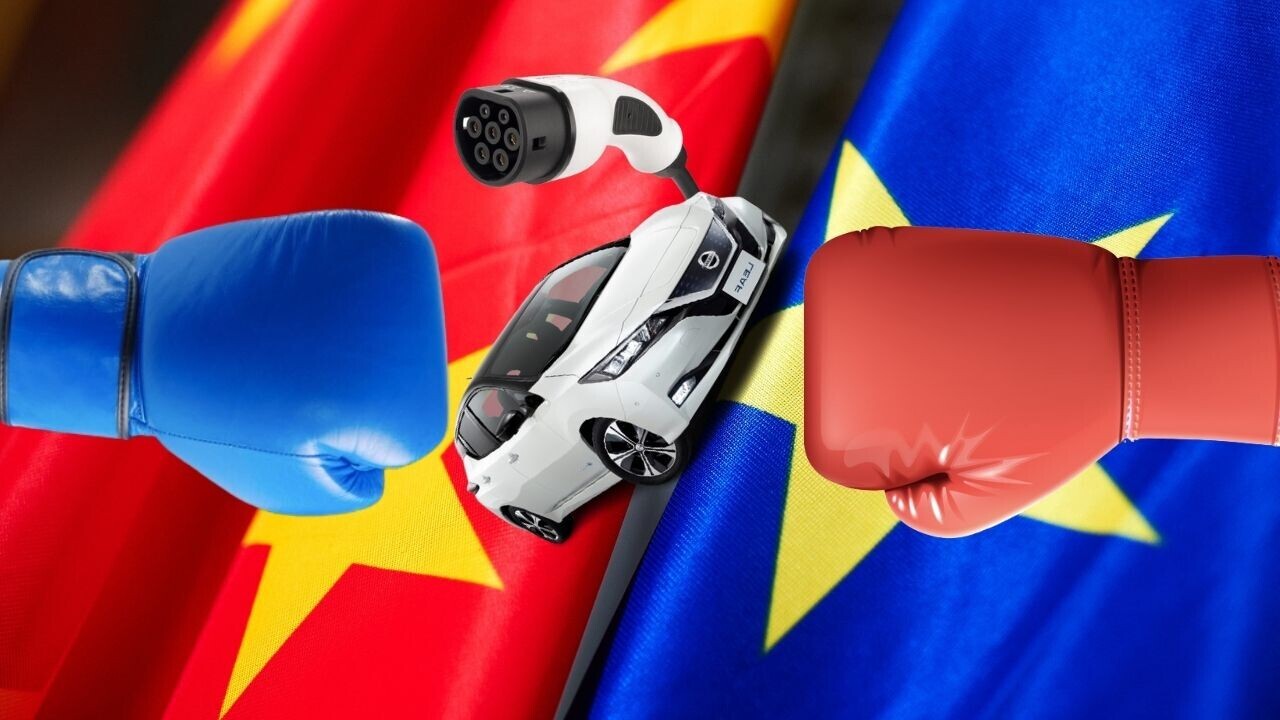The EU today confirmed huge new tariffs for EVs imported from China.
From Friday, provisional charges of between 17.4% and 37.6% will be imposed on the vehicles.
The lowest level will apply to BYD, an automaker based in Shenzhen. Geely, which owns Volvo, Polestar, and Lotus, faces duties of 19.9%. SAIC, a Chinese state-owned carmaker, will receive the maximum 37.6%.
Other companies will be subject to new tariffs of 20.8%, the weighted average.
These fees will come on top of a 10% duty that was already in place. As a result, prices of EVs in Europe could increase.
Beijing may also impose retaliatory measures. Nonetheless, the EU argues that the intervention is essential.
Why is the EU imposing the new tariffs?
The charges are an attempt to protect the EU auto industry. Beijing has been accused of creating unfair competition through “illegal subsidisation” of Chinese EV makers.
Last October, the EU opened an investigation into the matter.
“The electric vehicle sector holds huge potential for Europe’s future competitiveness and green industrial leadership,” Ursula von der Leyen, the European Commission president, said at the probe’s launch.
“EU car manufacturers and related sectors are already investing and innovating to fully develop this potential. Wherever we find evidence that their efforts are being impeded by market distortions and unfair competition, we will act decisively.”
The EU has now concluded that the subsidies are indeed unfair. With access to this state support, Chinese EV makers stand accused of artificially lowering prices.
According to Brussels, this threatens “economic injury” to the bloc’s carmakers. Still, not everyone in the EU supports the charges.
Reactions in the EU
Government officials and carmakers have raised several objections to the tariffs.
Sweden’s prime minister fears the duties will escalate “a wider trade war.” Germany’s chancellor warned the measures will also harm EU companies that import EVs from China.
Hungary, which has forged a strong trade partnership with Beijing, has provided sterner rebukes. “We disagree with the brutal European punishment of Chinese electric car manufacturers with punitive tariffs,” the country’s economic ministry said last month. “Protectionism is not the solution.”
Another critic is German car giant Volkswagen. “The negative effects of this decision outweigh any benefits for the European and especially the German automotive industry,” a company spokesperson said today.
Industry analysts have also questioned the EU’s plans. James Edmondson, an EV expert at market intelligence firm IDTechEx, fears the plan will backfire.
“The long term impact of restricting trade with China more generally could be detrimental to EU manufacturers and adoption of EVs especially when the EU is still so reliant on China for components like EV batteries,” he told TNW last month.
Negotiations continue
Inevitably, the EU has downplayed the concerns. The bloc’s trade chief, Valdis Dombrovskis, said discussions with Beijing could still create a mutually beneficial outcome.
“Our aim is to… ensure fair competition and level playing field,” Dombrovskis told Bloomberg News today. “Therefore, once again, we do not see any basis for retaliation.
“Those talks with China are ongoing and indeed should a mutually beneficial solution emerge, we can also find ways not to apply at the end of the day the tariffs.”
Get the TNW newsletter
Get the most important tech news in your inbox each week.





